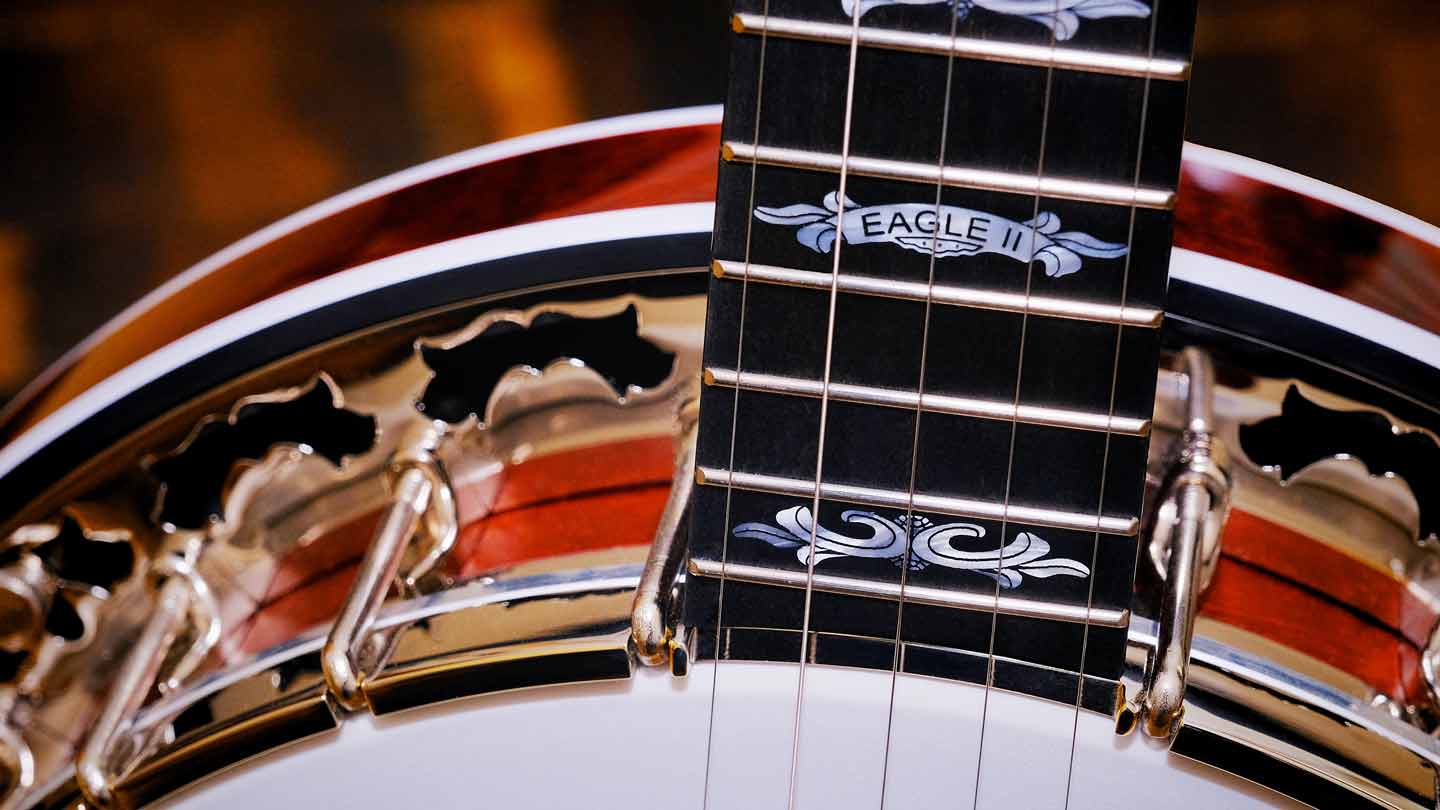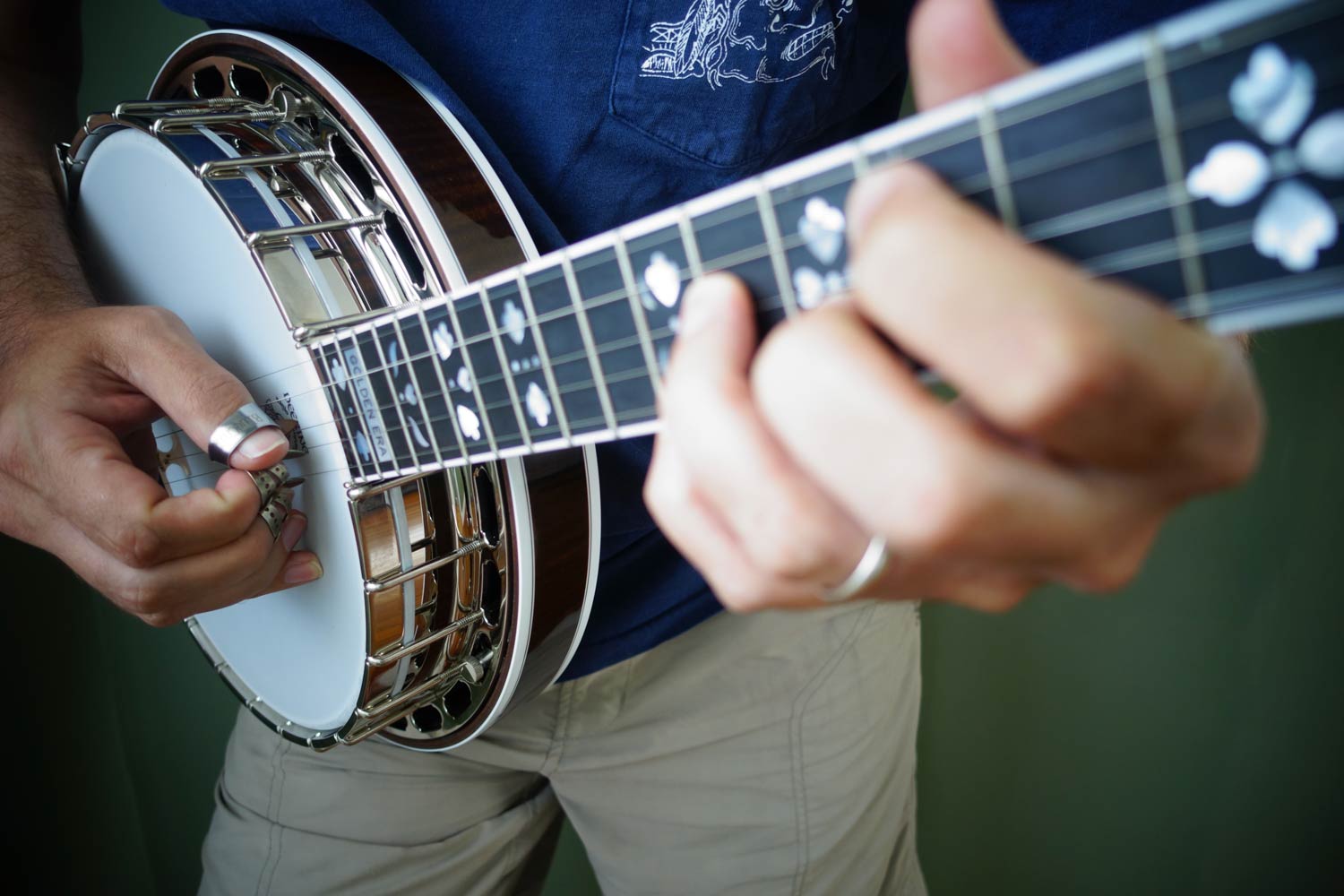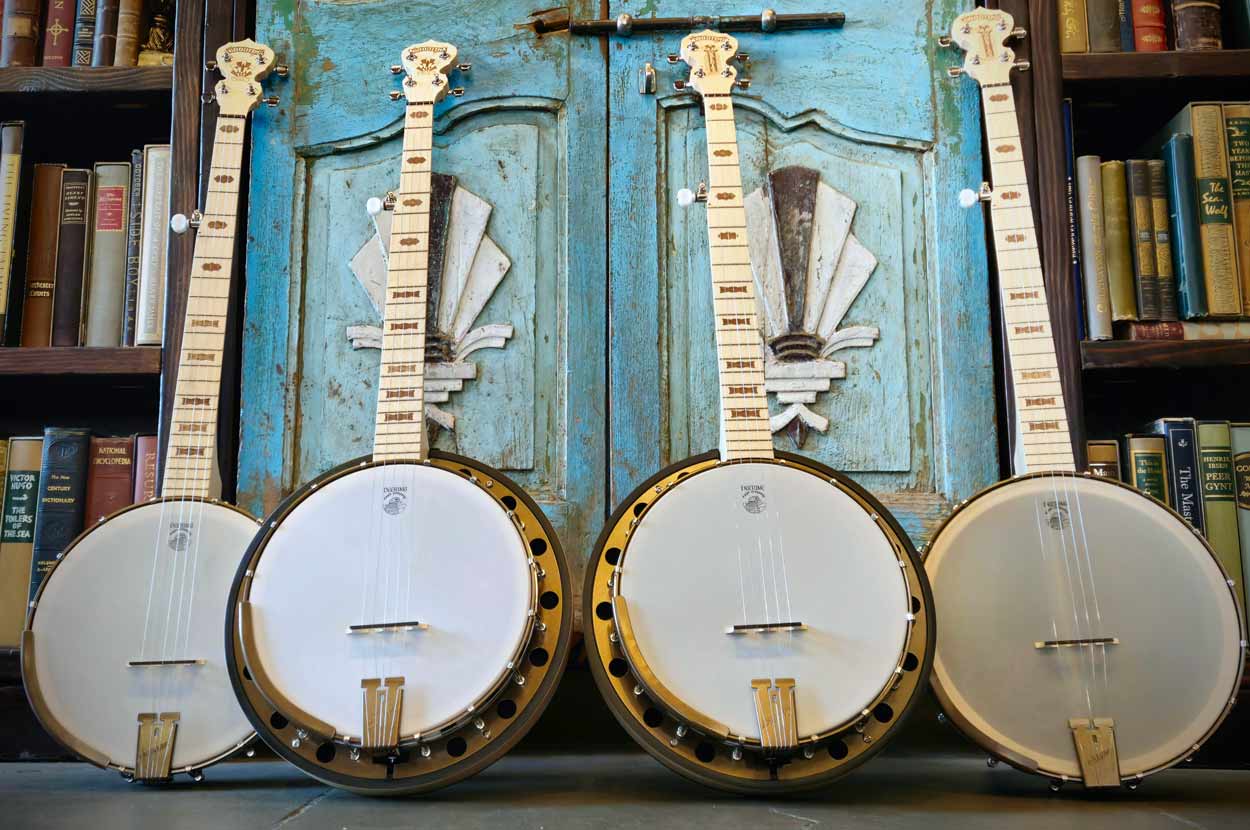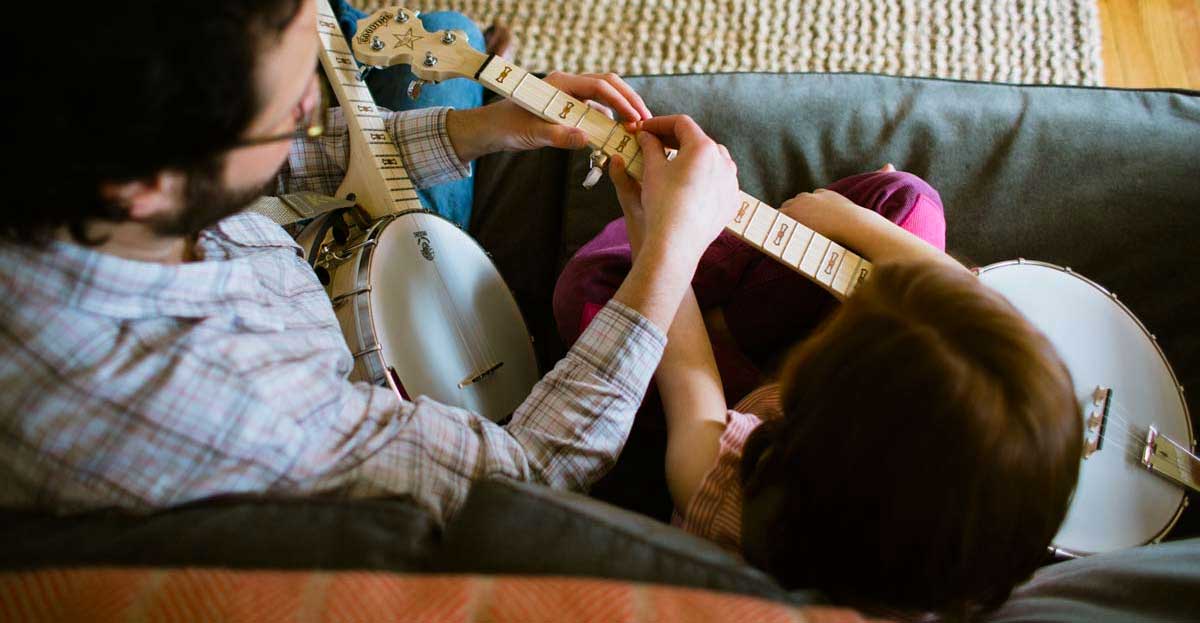Deering introduces Richlite™ to Boston Banjo
All Deering Boston Models to feature Richlite™ fingerboards
As you will have read form our previous article "Deering & Ebony - An Introduction", you will know that Deering faces the challenge of a decreasing availability of Gabon Ebony which we use on finger boards for all of our Deering and Vega instruments. After much testing and deliberation, Deering is extremely happy to announce that with immediate effect, all Boston models will feature finger boards made from a synthetic alternative to ebony called Richlite.
Already widely used in the stringed instruments sector, Richlite is a natural fiber composite made up of mostly recycled paper and a special resin. The finished product is something that bears remarkable similarities to ebony in both the way it reacts to our manufacturing processes and the way the banjo feels, plays and sounds. It is also equally, if not more durable than ebony.
After recently surveying some top players with a specially made Richlite prototype Eagle II, it quickly became apparent that it was near impossible to spot the difference between Richlite and its natural counterpart.
So why would Deering use a synthetic material for a part that has for so long been made from one of natures greatest gifts? Well it comes down to one simple point - Sustainable responsibility. In my last article, I posed the question "Do we blindly continue contributing to the decline of the ebony forests until every last tree is gone? Or do we consider alternative options that will allow us to continue to offer the aesthetics that our customers expect without jeapordising the quality or playability of our instruments?"
The answer is not quite as clear cut as the questions that I asked, but as an industry leader, the one thing that is very clear is that we have a significant responsibility to ensure that we are using natures materials in a controlled and sustainable manner and sometimes this means utilizing other options.
With many synthetic alternatives to ebony on the market, we chose Richlite because:
- Richlite already has a proven track record in the guitar market
- Richlite can be worked in the same way as wood
- Richlite is classified environmentally friendly, utilizing 90% recycled materials and/or FSC Certified materials.
- Production of Richlite does not produce off-gas
- Richlite is 100% made in the USA.
For more information about Richlite, please click here.
All that is left for me to say on this point is "TRY ONE FOR YOURSELF". Please take the time to visit your local Deering dealer and try one of the new Richlite fitted Boston models and see if you can tell the difference!
















I’ve read this information from another instrument manufacturer and did not see there or here any mention of rosewood, which has been widely used. Why do manufacturers not move to rosewood, or is it also scarce?
I ordered a custom Black Diamond open-back in 1988 and was recently tempted to trade it in for a well known old time model. After comparing in the showroom while mine was being evaluated for trade, I was unable to match the quality or tone of the Black Diamond and decided to keep my old friend. It seems I was correct in 1988 when I chose the Deering as the last banjo I’ll ever need to buy.
Compliments on your vision to enhance your website. Over the last two years it has vastly improved in visual and information quality. Finally I look forward to receiving your newsletters featuring articles on the banjo, the artists using Deering instruments and the concern of the environment issues.
In the sixties I came across some ‘Lignastone’ This is an impregnated ‘Beech’ timber used in hydraulic presses as it did not compress under load. To cut it I had to use a hacksaw and not normal joiners tools.
There must be more timbers which due to treatment will give very hard materials with sound giving properties.
Lignastone is very hard and dense and would ring very well.
Hi Brian,
Your question is a good one but it isn’t a straight yes or no answer. Ebanol is simply a generic term for synthetic ebony, but it comes in many shapes, sizes and chemical make ups depending on who makes it. All of these will yield varying levels of quality and stability. So while the production process is similar, it would be wrong to label it as the same product. Indeed, Deering has experimented with these earlier forms of ebanol many years ago for no other reason than curiosity. These were prototypes and so never made the light of day and one of the main reasons for this was the movement in wood that you describe. It was not even close to meeting our quality standards and at the time, the state of real ebony was far more secure than it is today. So we continued using real ebony.
Now, times are different. There is a real need to at least consider alternatives and with this in mind, we naturally took very small, cautious steps when Richlite came across our radar. We also carried out some very in depth testing, including leaving Richlite sample fingerboards outside our shipping dock for a day in temperatures ranging from 79.6 degrees to over 110 degrees in Spring Valley summer heat. After measuring before and after we were able to determine that the finger board moved only .002” which we were only able to identify with a pair of high quality calipers.
We continued to test with regards to how it works with our tools, our production process, the inlay process and it passed very well. This gave us the confidence that we needed to move on with using Richlite on our Boston range.
I hope this answers your question.
Kindest regards,
Jamie
Vice President of Administration
Deering Banjo Company
Leave a comment